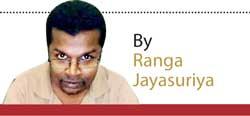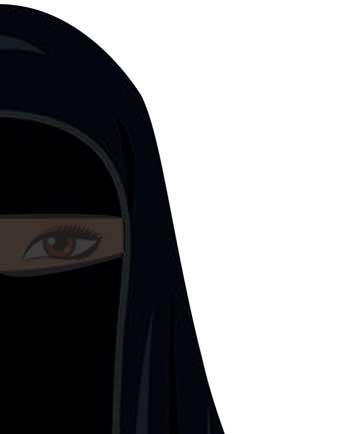Reply To:
Name - Reply Comment
Last Updated : 2024-04-20 09:59:00
 Last week, the Police officially announced that the ban on the full-face veil which was imposed under the emergency regulations in the aftermath of the Easter Sunday attacks is no longer valid as a result of the expiration of the emergency regulations.
Last week, the Police officially announced that the ban on the full-face veil which was imposed under the emergency regulations in the aftermath of the Easter Sunday attacks is no longer valid as a result of the expiration of the emergency regulations.
That might end the confusion over the legal context of Burka and Niqab. But, this will be the beginning of a very toxic situation.
Just before the lifting of the emergency regulations, a Cabinet paper was submitted to ban full-face covering in public places but was left aside on the insistence of Muslim political leaders who asked more time for further deliberations with the community.
 With the forthcoming presidential election, it is unlikely that the Cabinet would take up the matter anytime soon or ever. However, this trade-mark vacillation of perhaps the most indecisive government of recent time would not age well. It was the same politically influenced dithering towards the free- for- all Wahabisation in the Muslim community that created permissive conditions for the Easter Sunday attacks. Also, Muslim leaders who stand on the way of a commonsensical ban on the full-face veil in public places should know that they are not doing any service to their constituencies. It was their overt and covert complicity in the past that propelled Wahabisation, which has effectively triggered a wave of Islamophobia in the wider society.
With the forthcoming presidential election, it is unlikely that the Cabinet would take up the matter anytime soon or ever. However, this trade-mark vacillation of perhaps the most indecisive government of recent time would not age well. It was the same politically influenced dithering towards the free- for- all Wahabisation in the Muslim community that created permissive conditions for the Easter Sunday attacks. Also, Muslim leaders who stand on the way of a commonsensical ban on the full-face veil in public places should know that they are not doing any service to their constituencies. It was their overt and covert complicity in the past that propelled Wahabisation, which has effectively triggered a wave of Islamophobia in the wider society.
Sri Lanka is yet again mishandling the situation. Burka is making a come back. In a video shot somewhere in Kurunegala and was circulated in social media last week, a Burka clad woman and her husband were seen accosted by the members of public. The couple was seen arguing, rightly so, that the ban is no longer valid. The incident went without a violent confrontation, but, it is unlikely that future encounters will be the same. The Easter Sunday attacks have left deepening fissures in ethnic relations. The return of Burka is only adding to that mistrust. Soon rabid ultra-nationalist groups would be making this a rallying cry. At that point, the habitually reactive government would cave in, emboldening the bigots, and reinforcing a sense of victimhood of average Muslims.
However, it is not because of the ultra-nationalist proddings that the Burka and Niqab should be banned. There is very commonsensical reasoning of civility, security and mutual trust that make Burka out of place in the Sri Lankan society.
Burka is the signature garment of the global Salafi/Wahhabi extremism and its torchbearers of slave taking terrorists of Islamic State, Al Queda and their associates.
Some defend it as a matter of personal choice and freedom of expression- though the underpinning ideology that mandates Burka does not give much choice to the women other than hiding behind it. It is misogynic, oppressive and hateful of all diversity and pluralism of our societies.
Some others have argued, rather flippantly that none of the Easter Sunday terrorists wore Burkas. However, attacks are only the tip of the iceberg of violent and non-violent Islamic extremism. Beneath the surface, there is a larger nexus of actions, actors, ideological practices and drivers that constitute extremism. Burka is part of the most potent drivers of all: the creeping Arabisation and emergence of parallel societies within the Muslim community in Sri Lanka.
Hate and intolerance bread in these societies in the name of ‘authentic’ Islam exploded on the Easter Sunday.
Without dismantling this nexus of actors and drivers, and rolling back on the Wahabbization of local Muslims, Sri Lanka cannot avoid another terrorist attack.
However, the government is yet again taking a backfoot, driven by political calculations. Its vacillation is creating permissive conditions for radicalization. If it thinks that arrests of associates of Easter Sunday terrorists would alone insure Sri Lanka against future attacks, it is sadly mistaken.
Islamic radicalization in Sri Lanka is taking place beneath the surface. The government should confront these radicalization drivers that lead the Muslims into self-alienation from the rest of the Sri Lankan society. Burka represents that self-alienation.
Sri Lanka is a multi-cultural society, which should derive its strength in its diversity. However, diversity should not come at the expense of unity. If multi-culturalism is not to lead to social fragmentation, ethnic and religious minorities are required to integrate and assimilate themselves into the wider social fabric and not live in sidelines, willingly or unwillingly.
That assimilation and integration would not be possible if the most basic means of interpersonal communication is hindered by a full-face veil. The face plays an all-important role in interpersonal integration. In most cases, It would be hard- more so in the post-Easter attack Sri Lanka- to nurture a mutually trusting two-way communication with someone, who hides behind a cloak of face veil.
After all, Burka and Niqab are foreign transplants, much like Wahabism itself, which became popularized as local Muslims exposed themselves to the post 9/11 global Salafi wave. Later, these Arabised traditions took root in the country and displaced traditional Sufi infused Sri Lankan Islam from its dominant position.
Successive governments tolerated the incremental radicalization- until Muslim youth inculcated in that alien ideology and all the rage it represented blew up themselves, unleashing mass carnage.
Repetition of that should not happen!
Equally important, Sri Lankans who slavishly parrot everything that is of the West should, perhaps, learn from its mistakes of racial integration which have created parallel societies in vast immigrant ghettos. That exercise of liberal navity had created dangerous social fragmentation, which would deepen as demographic imbalances in these societies further widen.
Radicalization can not be reversed after it reached a certain threshold. Sri Lanka is not there yet. But, if the government keeps turning a blind eye, we will reach that point. If that day ever happens, the worst affected would be the Muslims, whom the government now erronesouly think is serving by pussyfooting on the Burka.
Follow @RangaJayasuriya on Twiter

Add comment
Comments will be edited (grammar, spelling and slang) and authorized at the discretion of Daily Mirror online. The website also has the right not to publish selected comments.
Reply To:
Name - Reply Comment
On March 26, a couple arriving from Thailand was arrested with 88 live animal
According to villagers from Naula-Moragolla out of 105 families 80 can afford
Is the situation in Sri Lanka so grim that locals harbour hope that they coul
A recent post on social media revealed that three purple-faced langurs near t